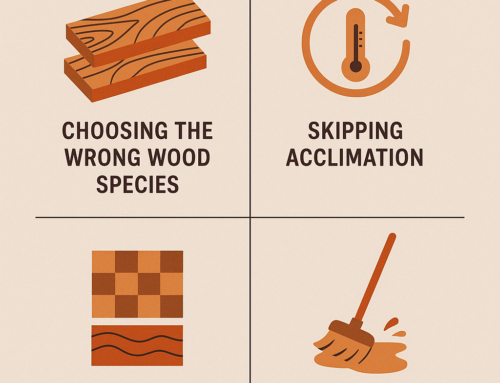When refinishing your floors, you will inevitably encounter the question of whether to finish them with an oil-based polyurethane hardwood finish or a water-based one. Polyurethane wood finish is essentially a tough, clear resin that allows the beautiful wood grain in your hardwood floors to show through while still protecting the wood from damage. While the differences between oil and water-based hardwood polyurethane finish are not huge, there are some important distinctions you should know on deciding between an oil and water-based hardwood finish.
There are a few basic characteristics that differentiate oil and water-based polyurethane hardwood finishes. These characteristics are color, density, drying time, and long-term protection. There are positives and negatives for both water and oil-based hardwood finish in each of these categories so being knowledgeable of these differences will help you choose. This article will help you choose either an oil and water based hardwood finish.
Why You Should Opt For An Oil-Based Finish
Color
Oil-based polyurethane acts more like a stain than water-based polyurethane. This means that if you decide to use an oil-based hardwood floor finish, the color of your wood is going to be warmer and richer. This is because the oil further penetrates the wood, and brings out the natural rich tones. You may want to choose an oil-based polyurethane if you are working with a darker, warmer wood and want to bring out the natural orange, red, and yellow tones.
Density
The density of the hardwood finish essentially refers to how thick of a layer the polyurethane goes on in. For an oil-based hardwood finish, this layer tends to be on the thicker side, which allows for greater protection. The thicker nature of the application generally calls for fewer coats of polyurethane which speeds up the finishing process as well. The dense nature of oil-based polyurethane also means that it is less prone to scratches, but is able to be dented more easily.
Drying Time
Because of the density mentioned previously, oil-based polyurethane takes longer to completely dry. This may sound like a bad thing but it is not. The longer drying time allows you to completely finish applying the polyurethane before the section you first applied is completely dry. As a result, the whole floor has a more even, uniform finish.
Long-Term Protection Factor
When it comes to long-term protection, both water and oil-based polyurethane hardwood finish hold up well. The advantage of oil-based is that the dense nature of the product does not allow it to be easily scratched. This durability will, in turn, allow you to enjoy your floors for years to come without refinishing again.
Water-Based Hardwood Finish May Be A Better Option For You
Color
The main difference here is that water-based polyurethane hardwood finish is completely clear. This means it goes on like a layer of glass and does not bring out the warm tones of the wood. A water-based hardwood floor finish is a much more suitable option for those who want cool-toned, or completely neutral wood floors.
Density
Unlike oil-based hardwood finish, water-based polyurethane goes on in much thinner, harder layers. On account of this factor, more layers of water-based polyurethane need to be applied to the hardwood to achieve sufficient protection. Generally, about 3 to 4 layers are recommended. The hardness of water-based hardwood floor finish also causes it to be scratched more easily.
Drying Time
Since the layers are much thinner, the drying time is also much quicker, which allows for your refinishing project to also be completed in a much faster time frame than it would be when using oil based hardwood floor finish.
Long-Term Protection Factor
Again, both of these products offer fantastic long-term protection. Water-based hardwood floor stain may require more frequent refinishing, on account of the fact that it is more easily scratched. But, since it has a faster drying time, as well as a truly neutral color, the pros of water-based hardwood floor finish may outweigh the con of refinishing a few years earlier.
If you are thinking about refinishing your hardwood floors, you need to contact Troendle Hardwood Company. For over a century, Troendle has been expertly installing, refinishing, and replacing hardwood floors in Pensacola and the Northwest Florida area. Call Troendle Hardwood Company or book your consultation online today.



